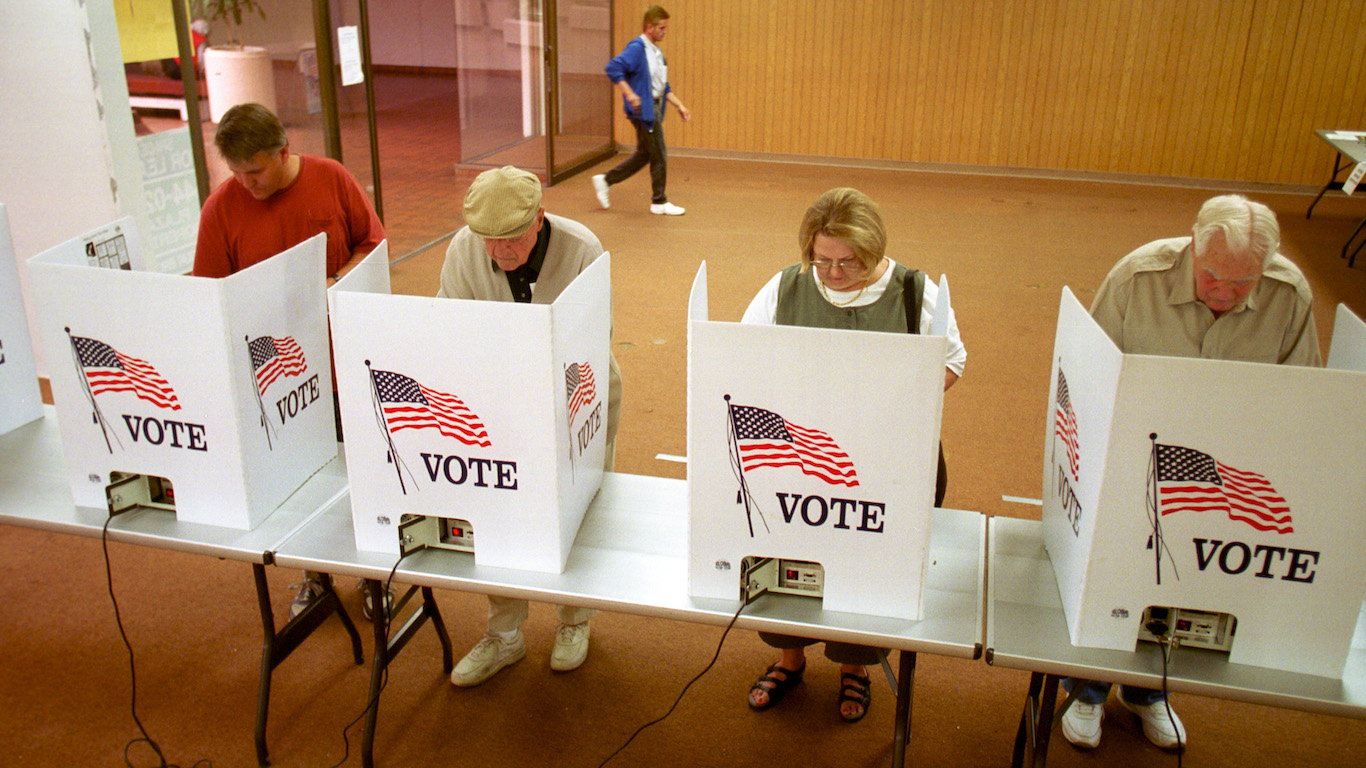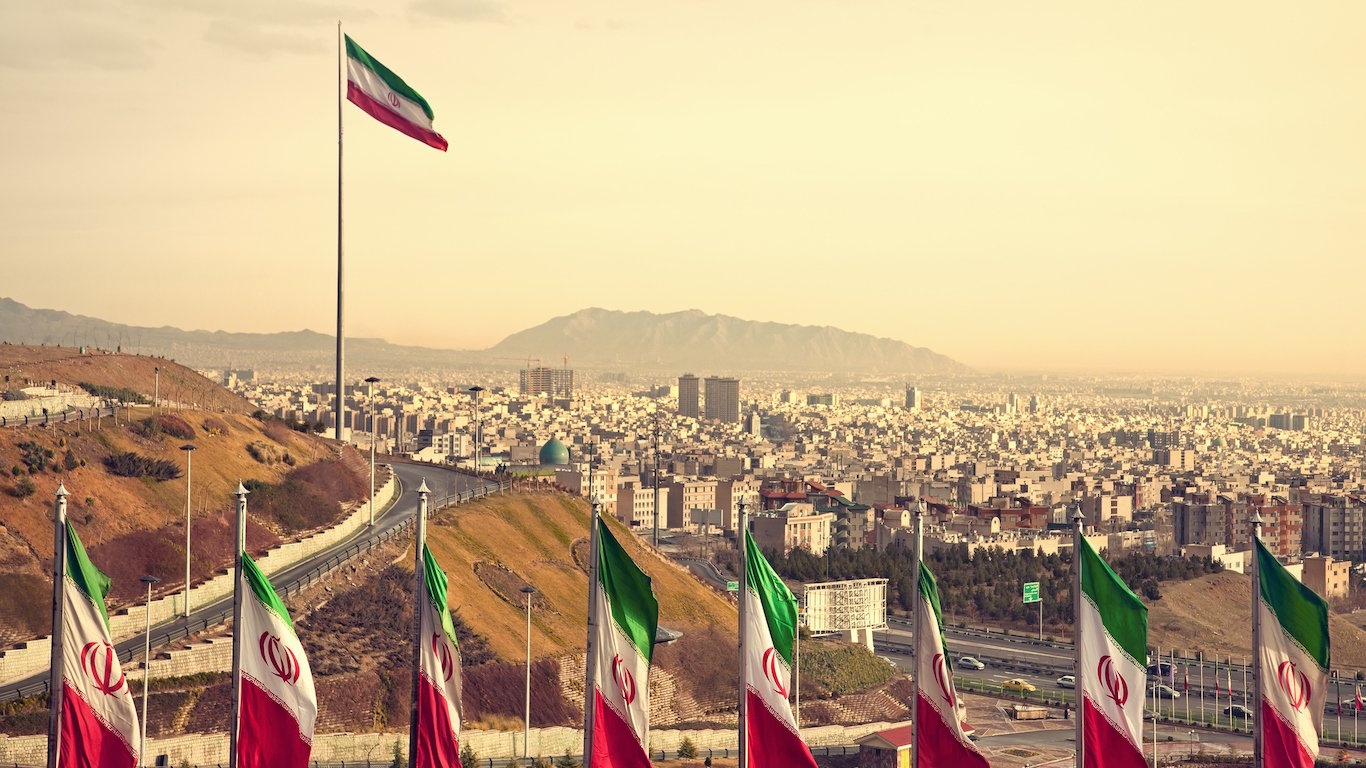

Americans made over 93 million visits to foreign countries in 2018, a 6.3% increase over the previous year. So far, 2019 appears to be on pace to be an even busier year for Americans traveling abroad. While international travel is growing in popularity, there are parts of the world that the U.S. government urges American travelers to avoid.
The U.S. Department of State has four advisory levels for travelers: level 4 – do not travel; level 3 – reconsider travel; level 2 – exercise increased caution; and level 1 – exercise normal precautions. 24/7 Wall St. compiled a list of the 26 nations for which the State Department has a standing level 3 or level 4 warning to identify the countries the U.S. government does not want you to go to. All listed travel advisories are current as of October 1, 2019. We also reviewed World Bank data on population and GDP per capita for the most recent available year.
The countries on this list span the globe — from Africa and the Middle East to Latin America and Southeast Asia — and despite their geographic distance, their problems often manifest in a similar way.
The prevalence of violent crime is one of the most commonly cited explanations as to why a particular country has standing level 3 travel warning from the State Department. In many countries on this list, armed robbery, kidnapping, and carjacking are relatively common occurrences. Two Latin American countries on this list are even home to cities with some of the world’s highest homicide rates — here is a list of the most dangerous cities worldwide.
In addition to crime, conditions like political instability, civil turmoil, and persistent terrorist threats — many of which target Western travellers — create dangerous travel conditions. Problems like these are particularly common in African and Middle Eastern countries on this list. Often, these countries are also among the poorest in the world and lack the necessary law enforcement and health care resources to adequately respond to unpredictable outbreaks of violence. Here is a look at the world’s 25 poorest countries.
In rarer cases, when a country has a standing level 4 travel warning, the potential dangers to American travelers are even more extreme. Several countries with level 4 warnings are in the throes of outright civil war. Others rank as unsafe for American tourists because they have authoritarian regimes that have no diplomatic relations with the United States. In these places, Americans are often detained and imprisoned without reason — and without an embassy or consulate, the U.S. government is unable to provide support services.
Click here to see the countries the U.S. Government doesn’t want you to go to
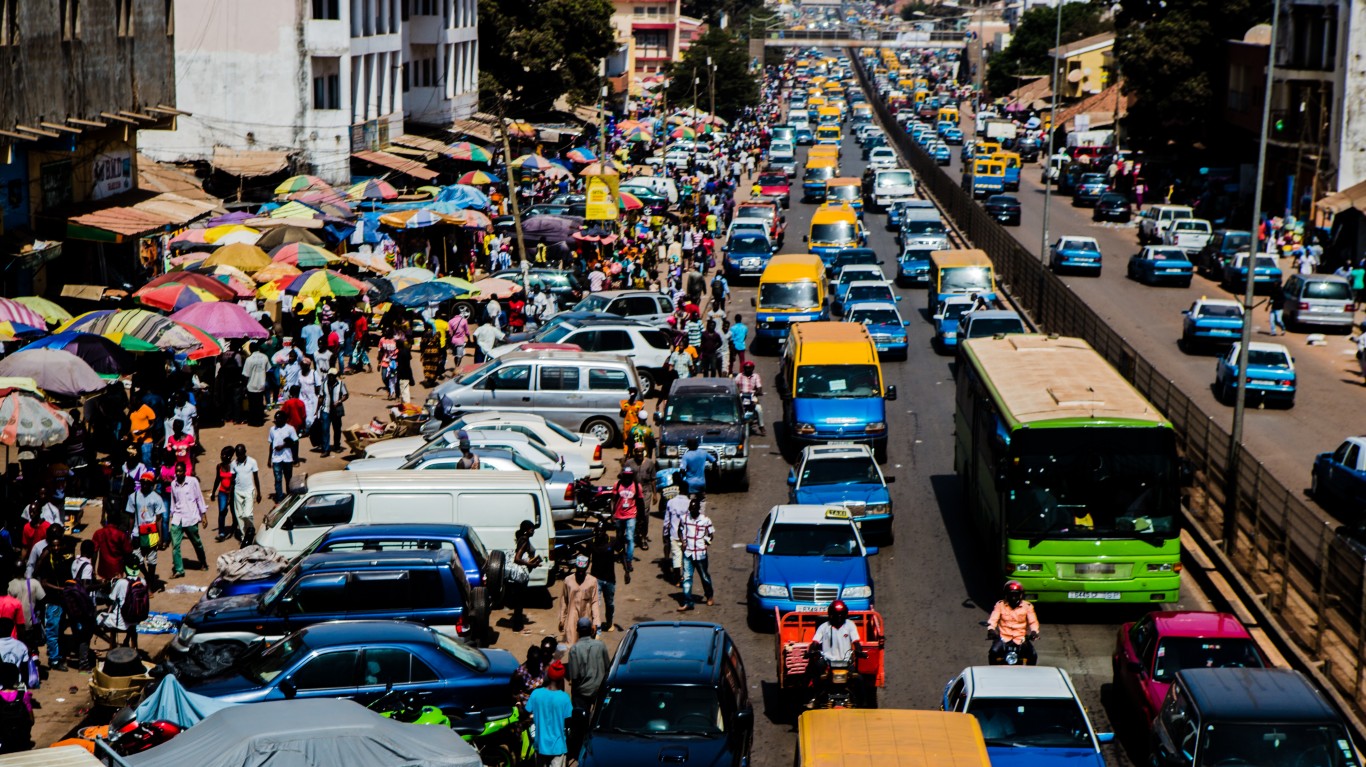
26. Guinea-Bissau
> Advisory level: Level 3: Reconsider Travel
> Last updated: April 25, 2019
> Population as of 2018: 1,874,309
> GDP per capita in 2018 $1,596
Guinea-Bissau, a small coastal nation in West Africa, is potentially dangerous for American visitors largely due to the prevalence of violent crime. Crowded areas, particularly the airport and markets in major cities, can be hotbeds for aggressive panhandling and criminal activity.
The country has also struggled with governmental dysfunction and political unrest for decades, creating fertile ground for violence. The United States does not have an embassy in the country, and as a result, emergency services for American citizens are limited.
[in-text-ad]
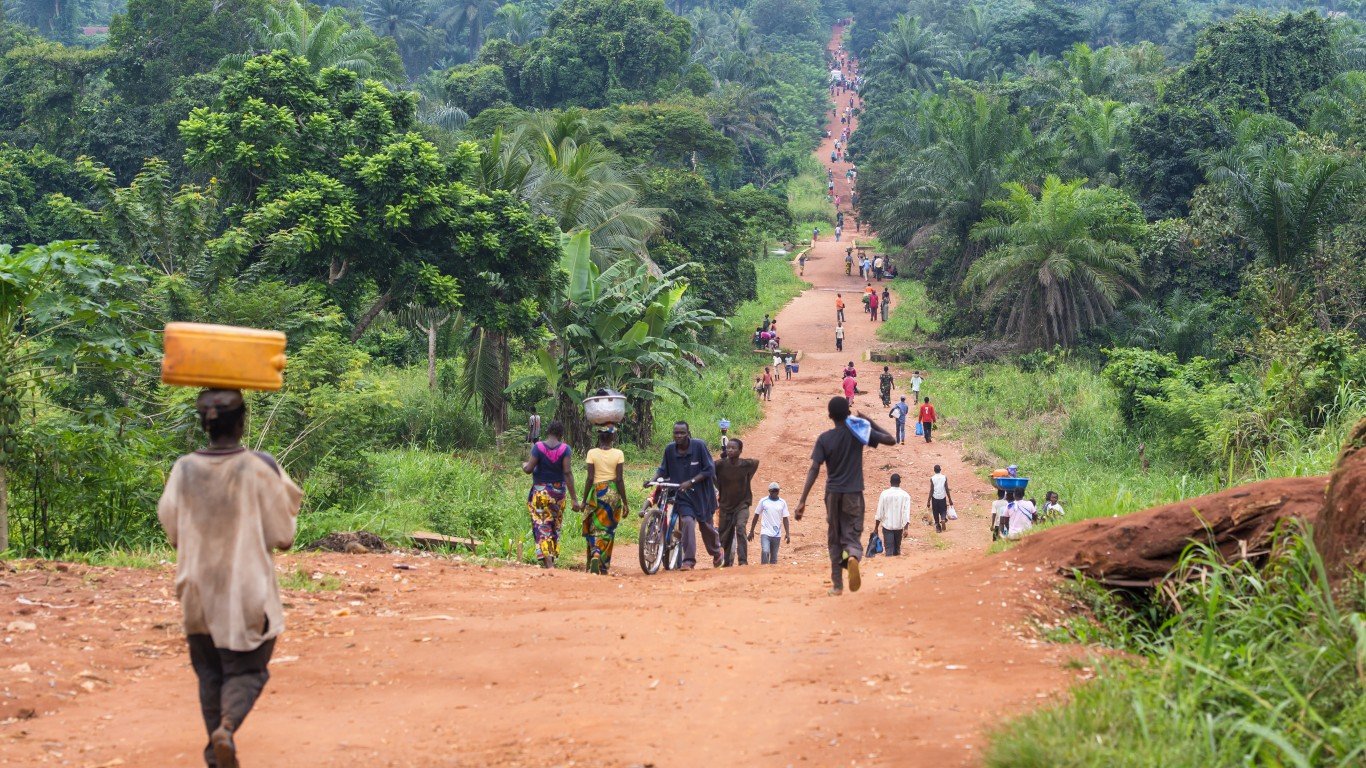
25. Democratic Republic of the Congo
> Advisory level: Level 3: Reconsider Travel
> Last updated: April 9, 2019
> Population as of 2018: 84,068,091
> GDP per capita in 2018 $827
The U.S. government has asked American citizens to reconsider traveling to the Democratic Republic of the Congo because of crime and civil unrest. Some areas have increased risk due to health concerns, including an outbreak of Ebola in the provinces of Nord-Kivu, Ituri — which have a level 4 do not travel advisory. As of Aug. 30, the death toll from the country’s latest Ebola outbreak had risen above 2,000.
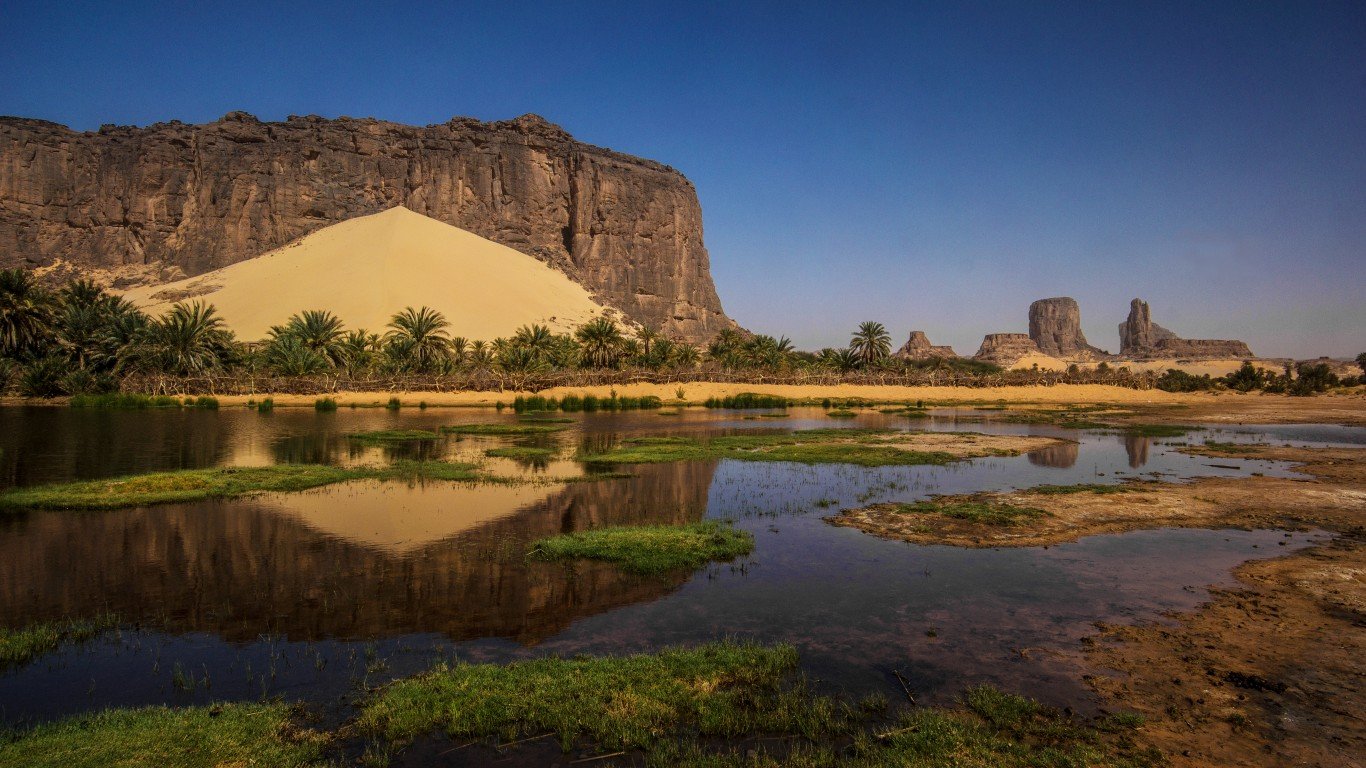
24. Chad
> Advisory level: Level 3: Reconsider Travel
> Last updated: Jan. 30, 2019
> Population as of 2018: 15,477,751
> GDP per capita in 2018 $1,746
Travelers need to be aware of crime, terrorism, and minefields in Chad. The State Department reported a surge in crimes in the African nation in 2018. Extremist groups such as Boko Haram and the Islamic State of Iraq and Ash-Sham âWest Africa can cross the border easily and target foreigners, security personnel, and other groups. Chad also has unmapped areas of minefields near the borders with Libya and Sudan.
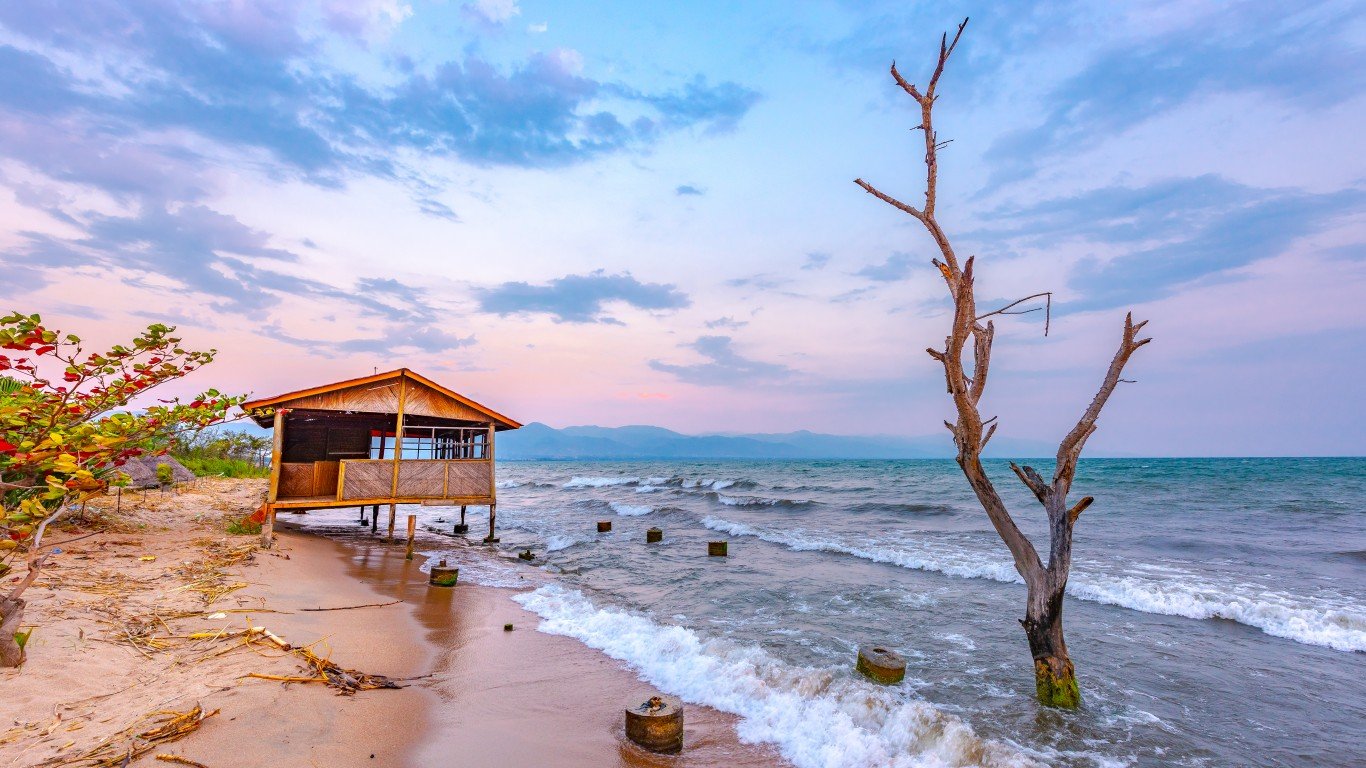
23. Burundi
> Advisory level: Level 3: Reconsider Travel
> Last updated: June 12, 2019
> Population as of 2018: 11,175,378
> GDP per capita in 2018 $660
Crime and political violence are relatively common in the Central African nation of Burundi — and local police are often ill-equipped to effectively respond to such incidents. The country lacks adequate medical and fire emergency services, and the U.S. government has limited ability to provide emergency services to Americans travelling in the country.
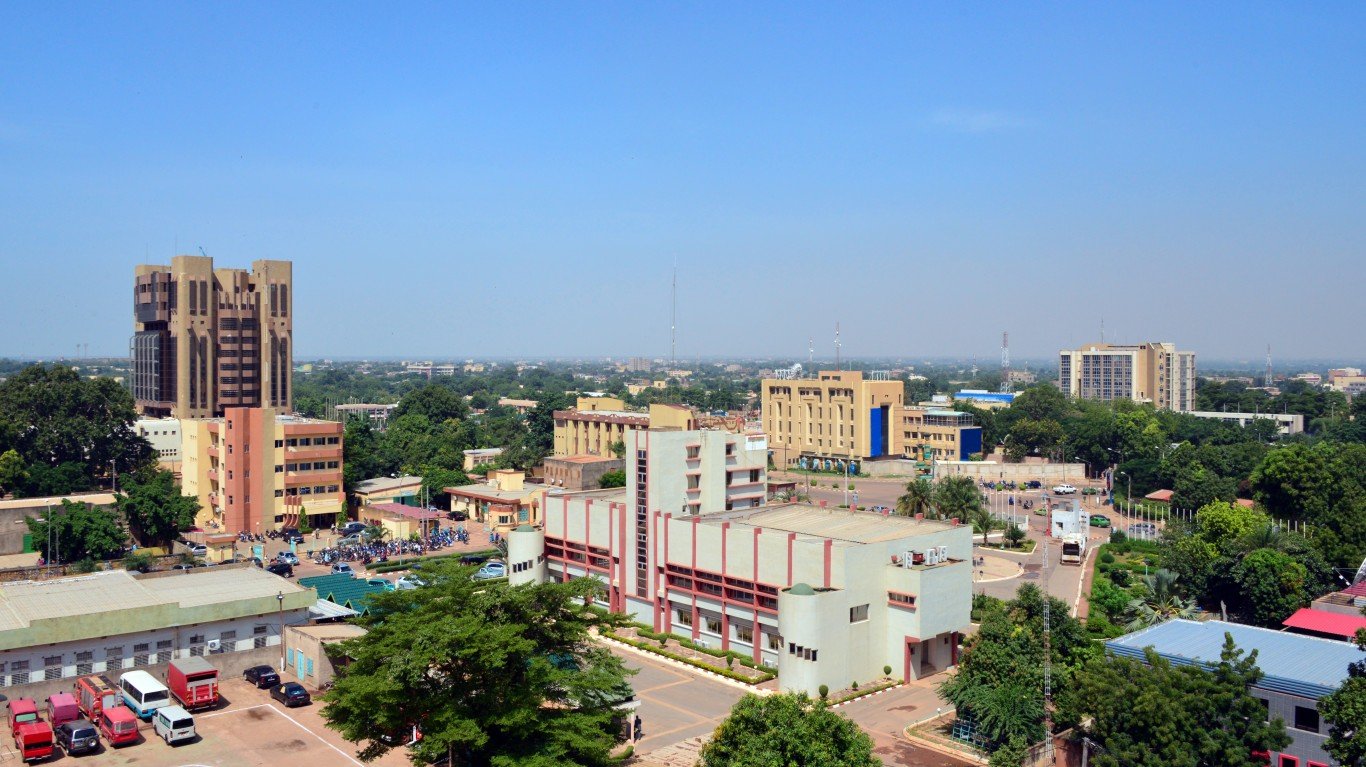
22. Burkina Faso
> Advisory level: Level 3: Reconsider Travel
> Last updated: June 3, 2019
> Population as of 2018: 19,751,535
> GDP per capita in 2018 $1,756
Travelers need to be wary of crime and kidnapping in Burkina Faso — and terrorism is a major concern there. The State Department advises Americans not to travel to regions surrounding the central part of the landlocked West African nation in particular.
To combat terrorism in Burkina Faso, the military launched counterterrorism operations in March and May of this year, targeting the northern and eastern regions of the country.
[in-text-ad]
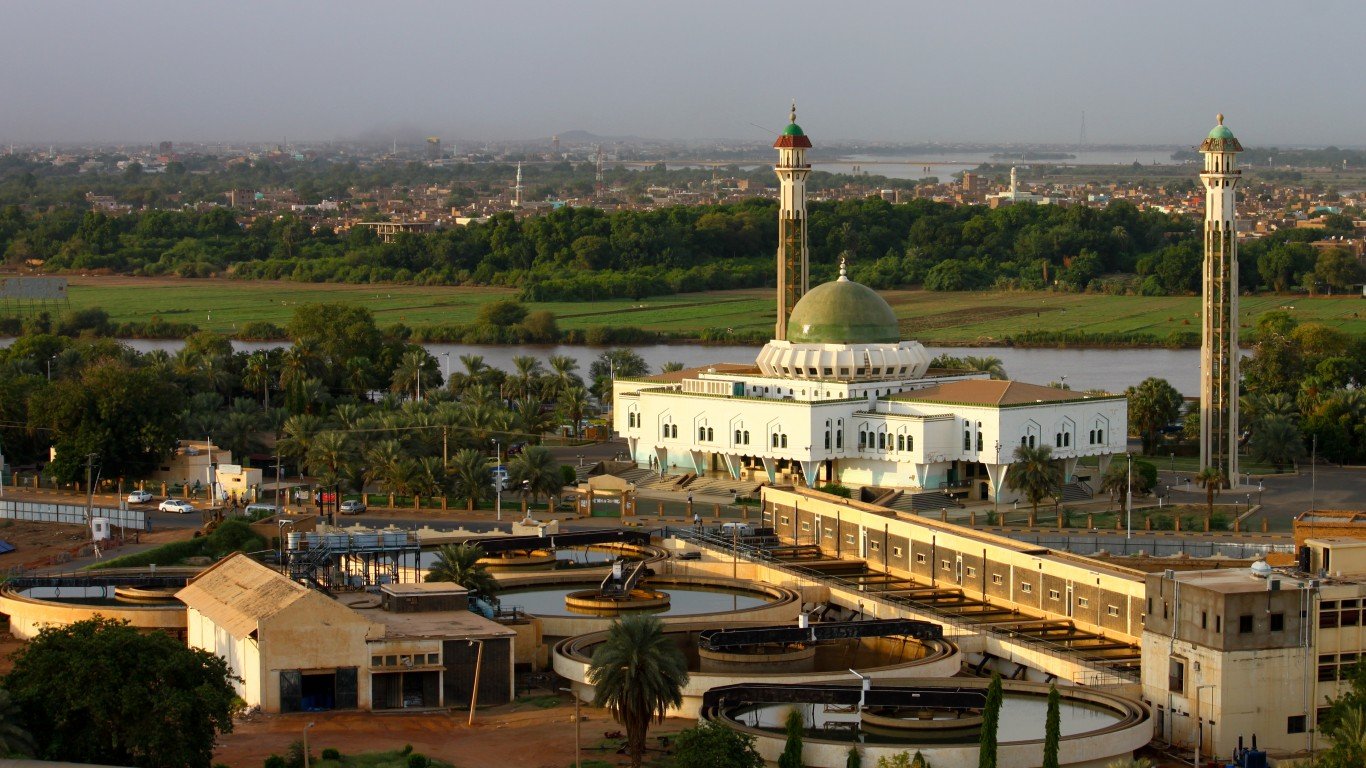
21. Sudan
> Advisory level: Level 3: Reconsider Travel
> Last updated: Sept. 26, 2019
> Population as of 2018: 41,801,533
> GDP per capita in 2017 $4,436
Violent crimes, including armed robbery, carjacking, and home invasions, happen relatively often in Sudan, particularly outside of the capital city of Khartoum. Terrorist groups operating in the country pose a threat and may target Westerners through kidnappings, shootings, and suicide bombings. American officials in the country are required to travel in armored vehicles when on official business.
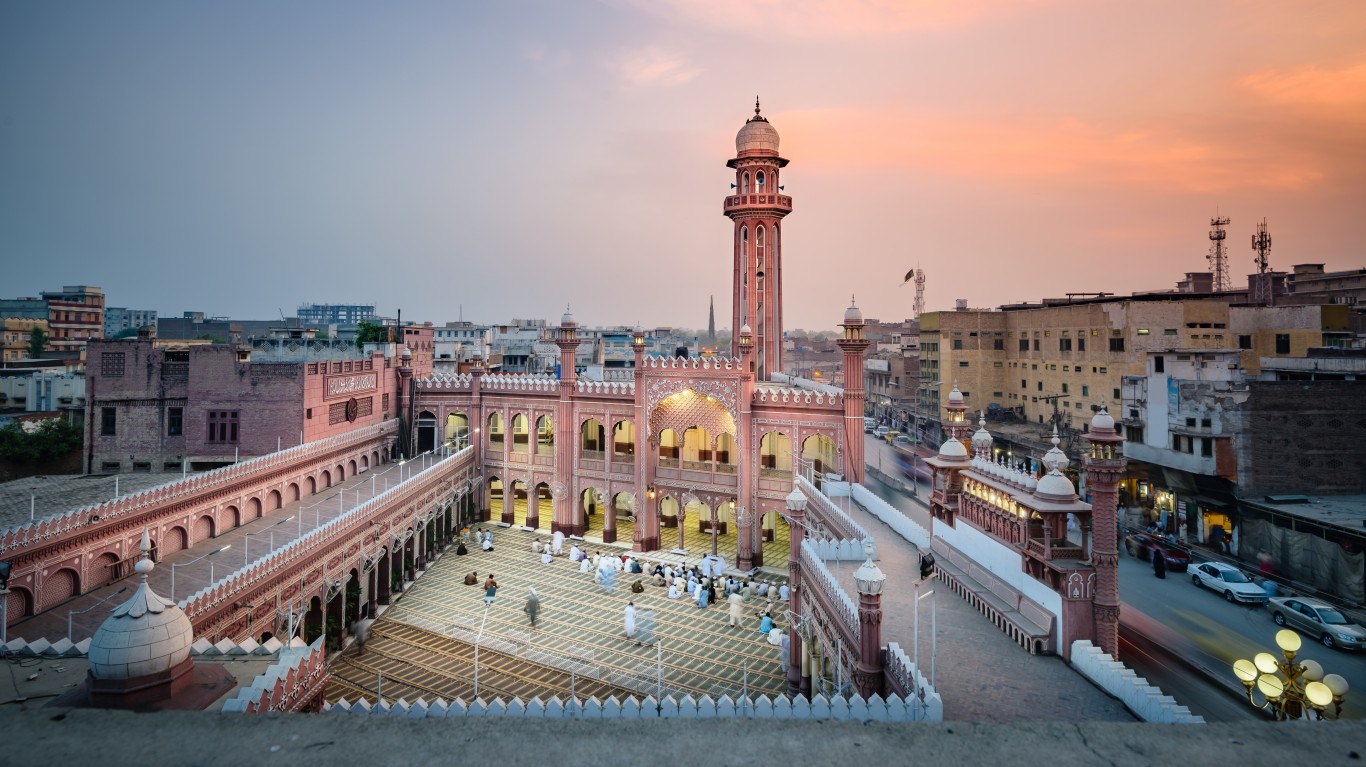
20. Pakistan
> Advisory level: Level 3: Reconsider Travel
> Last updated: April 9, 2019
> Population as of 2018: 212,215,030
> GDP per capita in 2018 $4,928
Pakistan remains a hotbed of terrorist activity, with the provinces Balochistan and Khyber Pakhtunkhwa — both of which are at level 4: do not travel — of primary concern for travelers. The Azad Kashmir area is also a potential region for violence. Tensions have risen in the India-administered region of Kashmir, which borders Azad Kashmir. Pakistan recently claimed that protesters in Kashmir were tortured and detained by the Indian army.
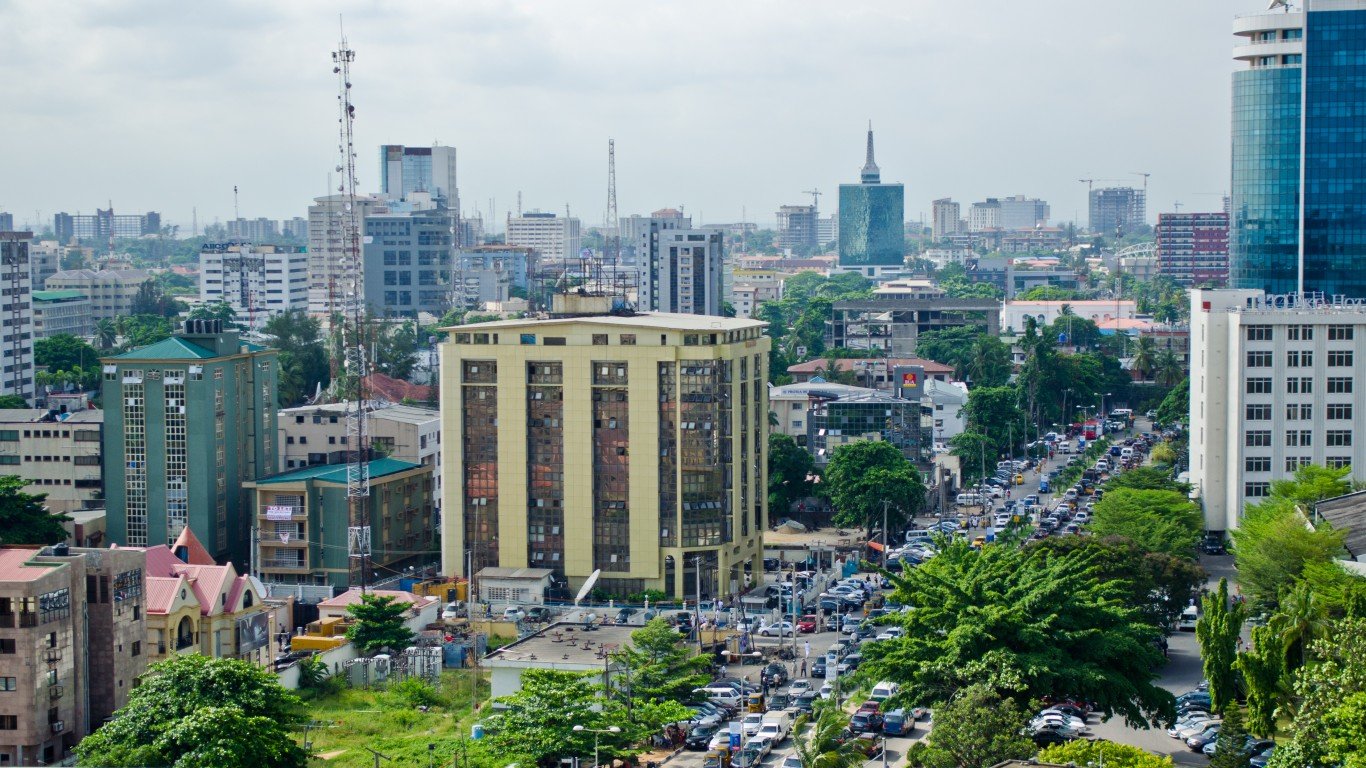
19. Nigeria
> Advisory level: Level 3: Reconsider Travel
> Last updated: April 9, 2019
> Population as of 2018: 195,874,740
> GDP per capita in 2018 $5,316
The threat of indiscriminate violent crime, including rape, robbery, and assault, is prevalent across much of Nigeria. Terrorsim is also a persistent threat, particularly in the northeastern part of the country, where terror groups target shopping centers, hotels, schools, government installations, and other places where crowds tend to congregate. The State Department advises Americans who choose to travel in the country to remain vigilant, avoid large political gatherings, and not to resist in the event of a robbery.
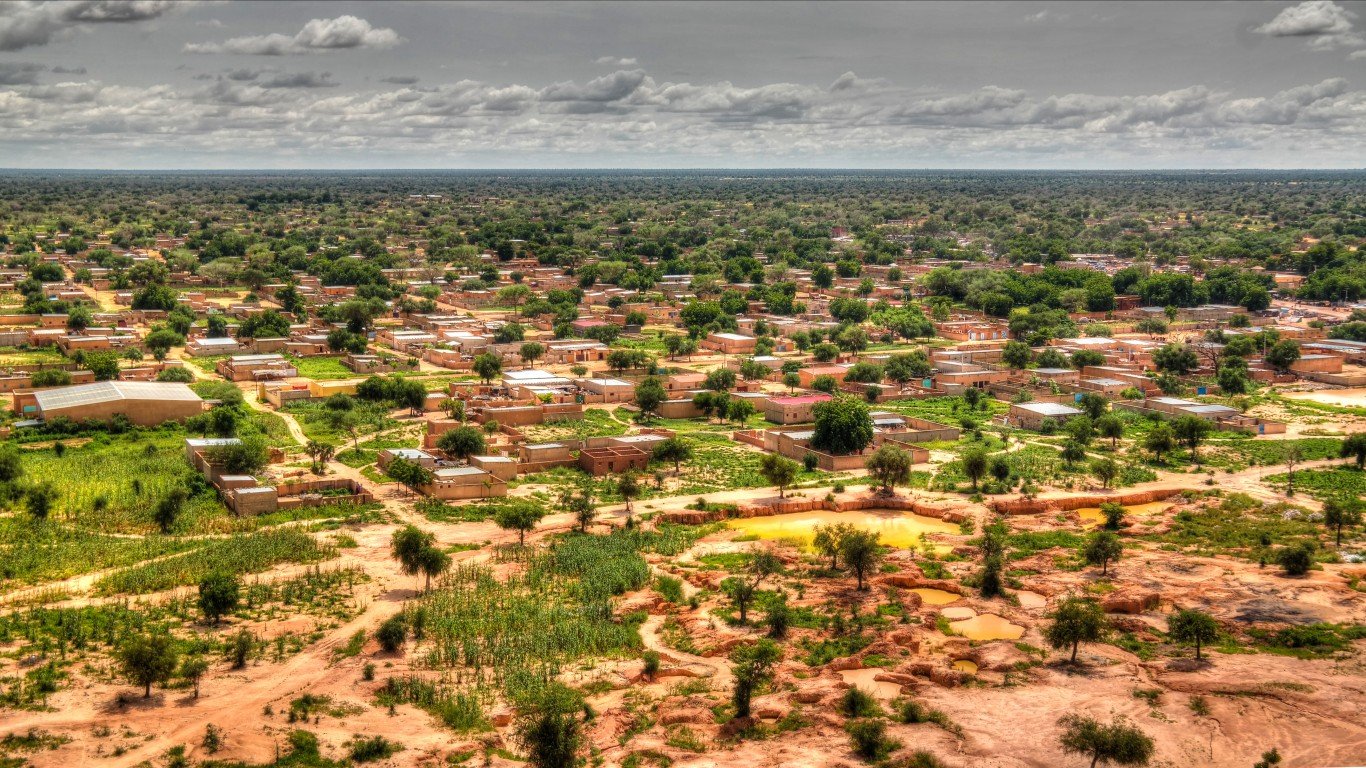
18. Niger
> Advisory level: Level 3: Reconsider Travel
> Last updated: April 9, 2019
> Population as of 2018: 22,442,948
> GDP per capita in 2018 $932
The landlocked West African country of Niger borders seven nations, and the State Department has asked Americans to reconsider travelling there because of crime, terrorism, and kidnapping. Terrorists are active in the bordering areas of Mali, Libya, Burkina Faso, and in the northern region of Niger. In the past, extremists based in Mali have crossed the border and attacked Niger’s security forces.
In May, Niger authorities said they thwarted a terrorist attack on a prison near the capital of Niamey.
[in-text-ad]
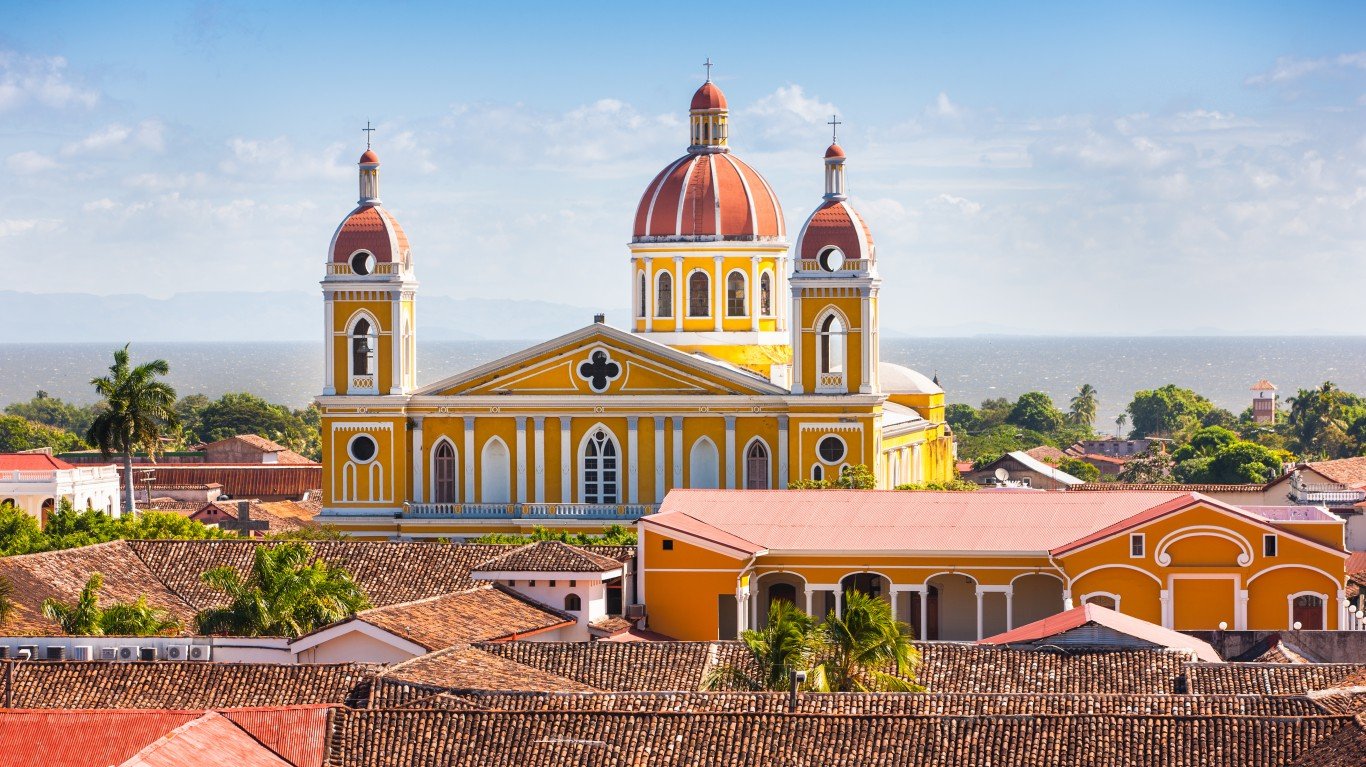
17. Nicaragua
> Advisory level: Level 3: Reconsider Travel
> Last updated: April 3, 2019
> Population as of 2018: 6,465,513
> GDP per capita in 2018 $4,910
Civil unrest and the general dissolution of law enforcement make Nicaragua a dangerous destination for American travellers. Both official police and armed civilians acting as police target anyone perceived to be in opposition to President Daniel Ortega. Pro-democracy protesters are arbitrarily detained by the government, and members of the press and human rights advocates are also regularly targeted. Violent crimes are also relatively common in the Latin American country.
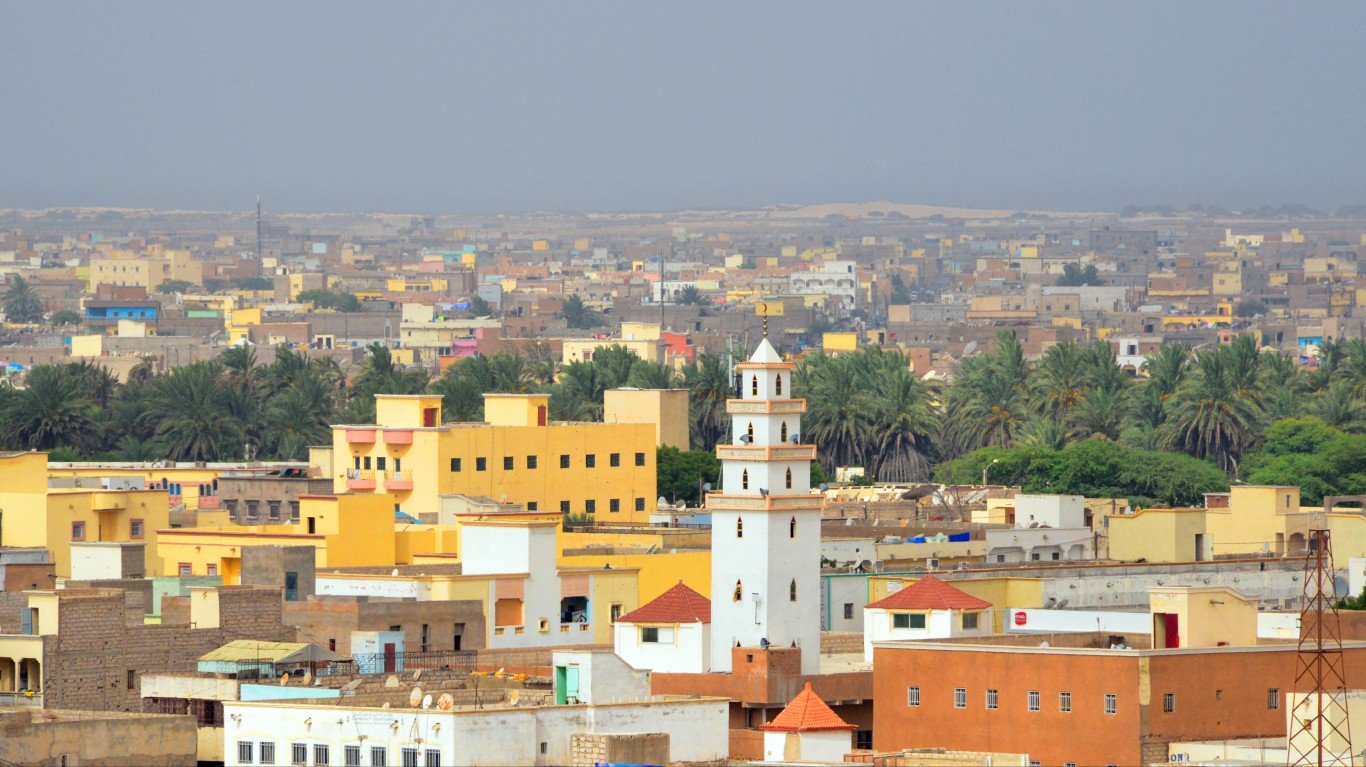
16. Mauritania
> Advisory level: Level 3: Reconsider Travel
> Last updated: Nov. 29, 2018
> Population as of 2018: 4,403,319
> GDP per capita in 2018 $3,724
Travelers are discouraged from journeying to the West African nation that borders the Atlantic Ocean because of crime and terrorism risks. In order to travel outside of the capital of Nouakchott, U.S. government employees have to obtain special authorization. American workers are only allowed to travel during daylight hours and are forbidden from walking alone outside of specific areas and times.
Mauritania has had a turbulent history since gaining independence from France in 1960 — it had five coups and has been led by military rulers for many years. In August, the country elected Mohamed Ould Ghazouani as president, and the nation completed its first peaceful transfer of power.
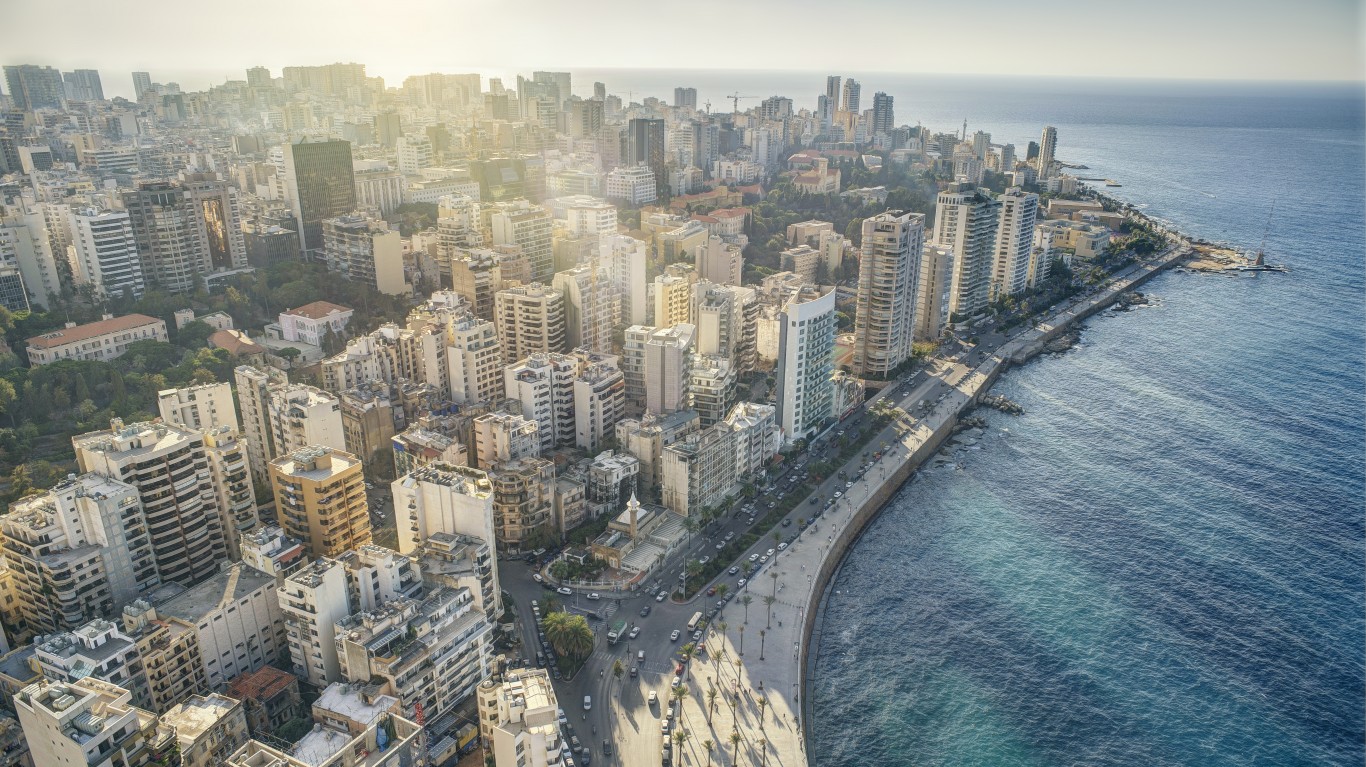
15. Lebanon
> Advisory level: Level 3: Reconsider Travel
> Last updated: April 9, 2019
> Population as of 2018: 6,848,925
> GDP per capita in 2018 $11,607
Lebanon, a country on the eastern shore of the Mediterranean Sea just north of Israel and bordering Syria to its east and north, is one of several Middle Eastern countries on this list. The perpetual threat of terroism is the primary reason for Lebanon’s level 3 advisory. Terror attacks are often carried out without warning and frequently target transportation hubs and tourist locations.
Thank you for reading! Have some feedback for us?
Contact the 24/7 Wall St. editorial team.
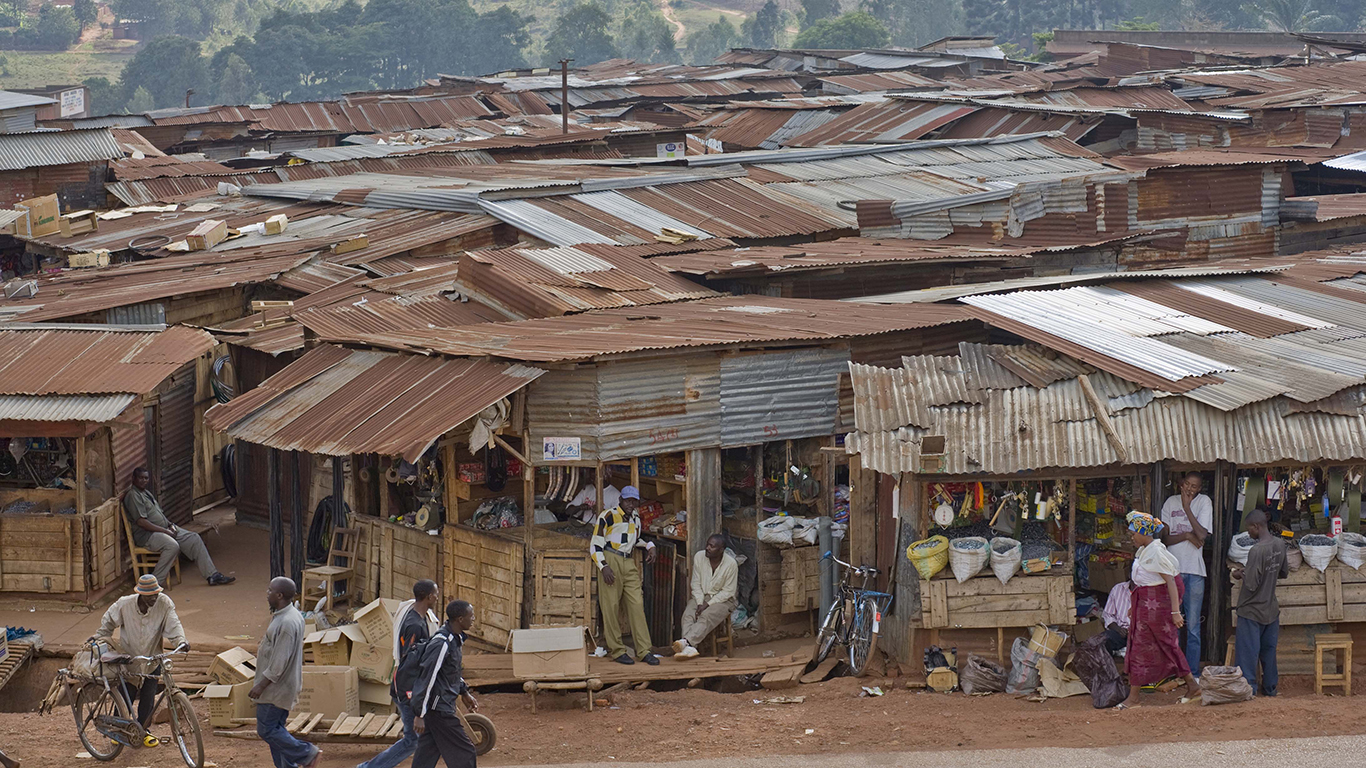 24/7 Wall St.
24/7 Wall St.

